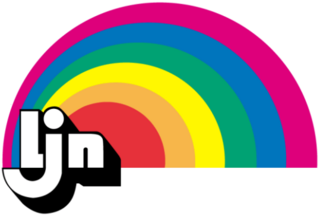Difference between revisions of "LJN"
From Sega Retro
MarioSonicU (talk | contribs) |
|||
| (9 intermediate revisions by 5 users not shown) | |||
| Line 1: | Line 1: | ||
| − | {{ | + | {{CompanyBob |
| logo=LJN Ltd logo.png | | logo=LJN Ltd logo.png | ||
| − | | width= | + | | width=150 |
| founded=1970 | | founded=1970 | ||
| − | | defunct= | + | | defunct=1995 |
| − | | | + | | mergedwith= |
| − | | | + | | mergedinto=MCA (1985), [[Acclaim Entertainment]] (1990) |
| − | + | | headquarters=Glen Cove, New York, United States | |
| − | | headquarters= | ||
}} | }} | ||
| + | '''LJN''' was an American toy manufacturer and video game publisher, notable for licensing a significant number of popular movies for adaptations to [[Nintendo Entertainment System]] games in the late 1980s and early 1990s, and for the generally poor quality of those games. | ||
| − | + | Company founder Jack Friedman would later establish game developer [[THQ]] in 1989, and toy design company [[JAKKS Pacific]] in 1995. | |
| + | |||
| + | ==Company== | ||
| + | LJN was founded by Jack Friedman in 1970 as a manufacturer of toys, and specialized in the production of action figures. The company was acquired by MCA in 1985, when it began to publish video games based on MCA properties. Five years later, LJN was sold to [[Acclaim Entertainment]], who dissolved its entire toy development division and reformed the company into a game publishing label. Now serving as Acclaim's [[Super Nintendo]] counterpart to its [[Sega Genesis]] counterpart [[Flying Edge]] (and later, [[Arena]]), all three labels would be retired in 1995, and future games uniformly used Acclaim branding. | ||
| + | |||
| + | The company would never truly publish a game for a [[Sega]] system (despite ''[[Spider-Man and Venom: Maximum Carnage]]'' erroneously crediting LJN in-game); however, the brand mysteriously re-emerged under the name "LJN Entertainment, Inc." for the 2000 [[Sega Dreamcast]] release of ''[[Spirit of Speed 1937]]''. The brand and name have never been used since, and the reasons for its inclusion is unknown. | ||
==Softography== | ==Softography== | ||
| − | == | + | {{CompanyHistoryAll|LJN}} |
| − | + | ||
| + | ==References== | ||
| + | <references/> | ||
[[Category:Third-party distributors]] | [[Category:Third-party distributors]] | ||
Latest revision as of 03:31, 28 March 2024

| ||
| LJN | ||
|---|---|---|
| Founded: 1970 | ||
| Defunct: 1995 | ||
| Merged into: MCA (1985), Acclaim Entertainment (1990) | ||
Headquarters:
|
LJN was an American toy manufacturer and video game publisher, notable for licensing a significant number of popular movies for adaptations to Nintendo Entertainment System games in the late 1980s and early 1990s, and for the generally poor quality of those games.
Company founder Jack Friedman would later establish game developer THQ in 1989, and toy design company JAKKS Pacific in 1995.
Company
LJN was founded by Jack Friedman in 1970 as a manufacturer of toys, and specialized in the production of action figures. The company was acquired by MCA in 1985, when it began to publish video games based on MCA properties. Five years later, LJN was sold to Acclaim Entertainment, who dissolved its entire toy development division and reformed the company into a game publishing label. Now serving as Acclaim's Super Nintendo counterpart to its Sega Genesis counterpart Flying Edge (and later, Arena), all three labels would be retired in 1995, and future games uniformly used Acclaim branding.
The company would never truly publish a game for a Sega system (despite Spider-Man and Venom: Maximum Carnage erroneously crediting LJN in-game); however, the brand mysteriously re-emerged under the name "LJN Entertainment, Inc." for the 2000 Sega Dreamcast release of Spirit of Speed 1937. The brand and name have never been used since, and the reasons for its inclusion is unknown.